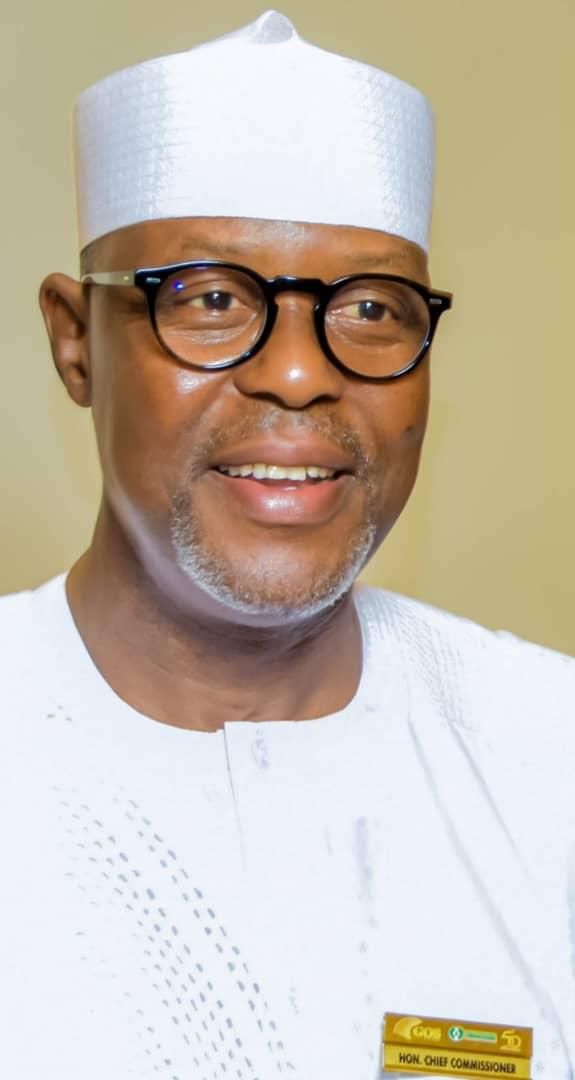By: Abdullahi Inuwa
The Chief Commissioner of the Public Complaints Commission (PCC), Hon. Bashir Abubakar, MFR, has called for a stronger, technology-driven and independent ombudsman institution to serve as the conscience of Nigeria’s democracy and a catalyst for good governance.
He made the call while delivering a keynote address at the Global Ombudsman Summit and 50th Anniversary Celebration of the Public Complaints Commission, held on October 21, 2025, at the Ladi Kwali Hall, Continental Hotel, Abuja, under the theme “Effective Ombudsman Institution: Catalyst for Good Governance.”
Abubakar said an effective ombudsman remains “a vital, independent mediator between the citizen and the state” and must stand firm in ensuring fairness, accountability, and transparency in public administration.
“An ombudsman is more than just a complaints office; it is the conscience of our democracy,” he declared, adding that the Commission’s golden jubilee was a call to strengthen the institution through integrity, professionalism, and innovation.
The Chief Commissioner emphasized the need to build a system-based administrative mechanism that goes beyond personalities, stressing that governance should rely on enduring structures and rule-based processes.
“Over-reliance on individuals, no matter how virtuous, weakens institutions. Our goal should be to build systems that outlast generations,” he said.
Abubakar also underscored the importance of a merit-driven civil service, noting that ethical officers should be rewarded, while erring ones face consequences. He insisted that an active ombudsman framework would help restore public trust.
“A meritocratic system enforces discipline and excellence. It serves as a powerful deterrent against corruption and malpractice,” he noted.
To strengthen institutional integrity, the Chief Commissioner proposed mandatory security clearance for all public appointees and constant ethics training for ombudsman staff, especially political appointees.
“Integrity and professionalism must not be negotiable in public service. Security clearance protects the institution from undue influence,” he emphasized.
Citing President Bola Ahmed Tinibu’s recent remarks delivered by Vice President Kashim Shettima at the National Judicial Institute, Abubakar highlighted that judicial delays undermine citizens’ trust in justice delivery. He called for stronger collaboration between the judiciary and the ombudsman’s office to ensure prompt enforcement of recommendations.
“Administrative justice must not remain a promise — it must be a reality. A swift judicial process reinforces the rule of law,” he said.
Abubakar also urged community-level participation in dispute resolution through traditional leaders, elders, and local mechanisms, saying that justice should be accessible and culturally grounded.
He further revealed plans to leverage modern technology, including an online complaints portal and automated case-tracking system, to improve transparency and efficiency.
“Technology will make our operations more transparent, faster, and accessible to all Nigerians — from the remotest areas to urban centers,” he affirmed.
In what he described as one of the Commission’s future focus areas, Abubakar emphasized that the ombudsman must go beyond reacting to complaints by conducting proactive research to identify systemic flaws and guide government reforms.
“Our recommendations should shape policy and strengthen institutions. Governments must use the ombudsman’s findings to improve service delivery,” he said.
Closing his address, the Chief Commissioner called on government institutions, civil society, and citizens to work together in building a just, fair, and transparent society anchored on accountability and equity.
“The path forward is clear. Let us commit to a future where every citizen’s voice is heard, and administrative justice is a guaranteed right, not a privilege,” he said.
As the PCC marks 50 years of defending citizens’ rights, Abubakar reaffirmed its readiness to embrace reforms that will ensure it remains a beacon of integrity, fairness, and hope for generations to come.
“Long live the Public Complaints Commission of Nigeria. Long live the Global Ombudsman Family,” he concluded to a rousing applause from dignitaries, diplomats, and governance experts from across the world.




